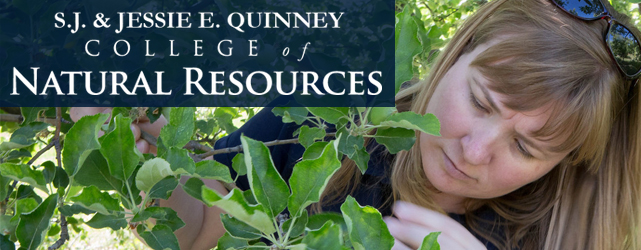Document Type
Article
Journal/Book Title/Conference
PLoS ONE
Volume
13
Issue
5
Publisher
Public Library of Science
Publication Date
5-1-2018
First Page
1
Last Page
19
Abstract
The preference-performance hypothesis states that ovipositing phytophagous insects will select host plants that are well-suited for their offspring and avoid host plants that do not support offspring performance (survival, development and fitness). The mountain pine beetle (Dendroctonus ponderosae), a native insect herbivore in western North America, can successfully attack and reproduce in most species of Pinus throughout its native range. However, mountain pine beetles avoid attacking Great Basin bristlecone pine (Pinus longaeva), despite recent climate-driven increases in mountain pine beetle populations at the high elevations where Great Basin bristlecone pine grows. Low preference for a potential host plant species may not persist if the plant supports favorable insect offspring performance, and Great Basin bristlecone pine suitability for mountain pine beetle offspring performance is unclear. We infested cut bolts of Great Basin bristlecone pine and two susceptible host tree species, limber (P. flexilis) and lodgepole (P. contorta) pines with adult mountain pine beetles and compared offspring performance. To investigate the potential for variation in offspring performance among mountain pine beetles from different areas, we tested beetles from geographically-separated populations within and outside the current range of Great Basin bristlecone pine. Although mountain pine beetles constructed galleries and laid viable eggs in all three tree species, extremely few offspring emerged from Great Basin bristlecone pine, regardless of the beetle population. Our observed low offspring performance in Great Basin bristlecone pine corresponds with previously documented low mountain pine beetle attack preference. A low preference-low performance relationship suggests that Great Basin bristlecone pine resistance to mountain pine beetle is likely to be retained through climate-driven high-elevation mountain pine beetle outbreaks.
Recommended Citation
Eidson EL, Mock KE, Bentz BJ (2018) Low offspring survival in mountain pine beetle infesting the resistant Great Basin bristlecone pine supports the preference-performance hypothesis. PLoS ONE 13(5): e0196732. https://doi.org/10.1371/journal.pone.0196732





